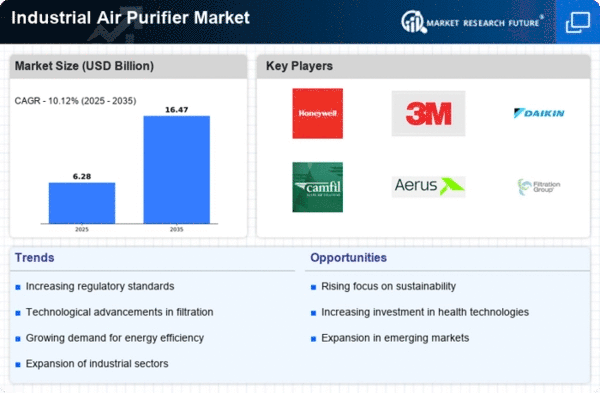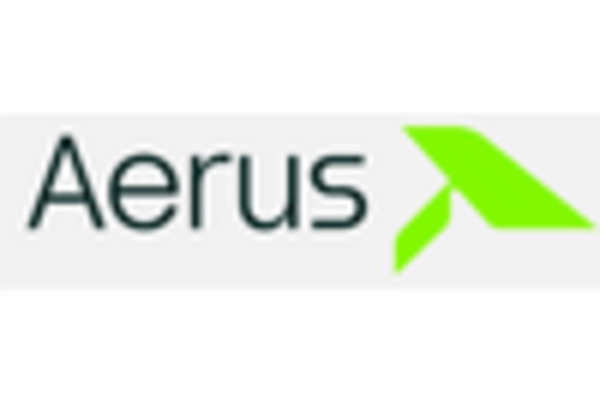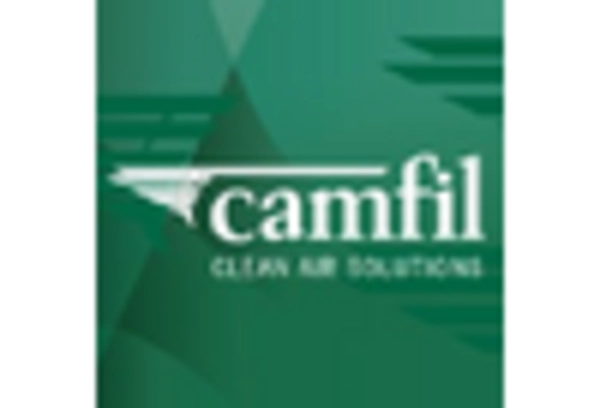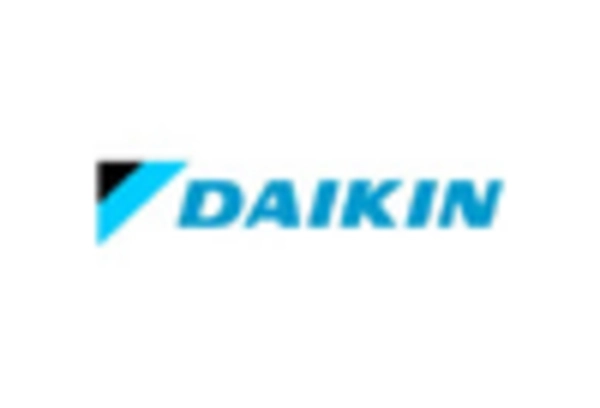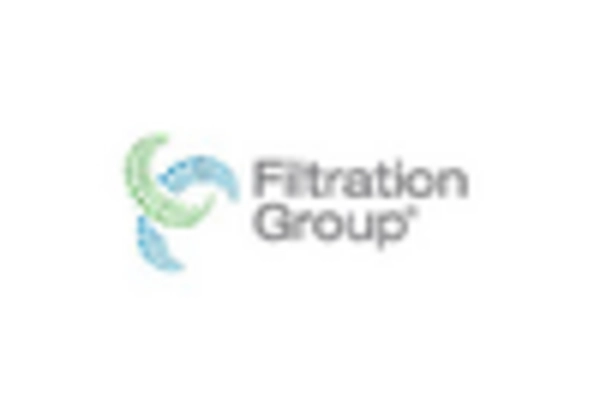Market Growth Projections
The Global Industrial Air Purifier Market Industry is projected to experience substantial growth over the coming years. With a market value of 5.7 USD Billion anticipated in 2024, the industry is on a promising trajectory. By 2035, the market is expected to reach 16.5 USD Billion, indicating a significant expansion driven by various factors such as regulatory compliance, technological advancements, and increasing health awareness. The compound annual growth rate (CAGR) of 10.13% from 2025 to 2035 further emphasizes the potential for growth in this sector. These projections highlight the increasing importance of air quality management in industrial settings.
Health and Safety Concerns
Health and safety concerns are pivotal in driving the Global Industrial Air Purifier Market Industry. The growing recognition of the link between air quality and health outcomes has prompted industries to prioritize air purification solutions. Organizations are increasingly investing in air purifiers to mitigate health risks associated with poor air quality, such as respiratory diseases and allergies. This heightened focus on employee well-being is reflected in the market's growth trajectory, with expectations of reaching 16.5 USD Billion by 2035. As industries strive to create safer work environments, the demand for effective air purification systems is likely to continue rising.
Technological Advancements
Technological advancements in air purification technologies are driving the Global Industrial Air Purifier Market Industry. Innovations such as high-efficiency particulate air (HEPA) filters, ultraviolet (UV) light systems, and electrostatic precipitators enhance the effectiveness of air purifiers. These technologies not only improve air quality but also increase energy efficiency, appealing to industries aiming to reduce operational costs. The integration of smart technologies, such as IoT-enabled air purifiers, further enhances monitoring and control capabilities. As industries seek to adopt these advanced solutions, the market is poised for substantial growth, with a projected CAGR of 10.13% from 2025 to 2035.
Growing Awareness of Air Quality
The increasing awareness regarding air quality and its impact on health is a primary driver for the Global Industrial Air Purifier Market Industry. As industries face scrutiny over their environmental practices, the demand for air purification solutions rises. For instance, organizations are implementing stricter air quality standards to protect employee health and enhance productivity. This trend is reflected in the projected market value of 5.7 USD Billion in 2024, indicating a robust growth trajectory. The focus on creating healthier work environments is likely to propel the adoption of industrial air purifiers, thereby contributing to the overall market expansion.
Regulatory Compliance and Standards
Regulatory compliance plays a crucial role in shaping the Global Industrial Air Purifier Market Industry. Governments worldwide are establishing stringent regulations to control emissions and improve indoor air quality. For example, the Environmental Protection Agency (EPA) in the United States has set guidelines that necessitate the use of air purification systems in various industrial sectors. This regulatory landscape compels industries to invest in advanced air purification technologies. As compliance becomes increasingly mandatory, the market is expected to grow significantly, with a projected value of 16.5 USD Billion by 2035, reflecting the urgency for cleaner air solutions.
Rising Industrialization and Urbanization
The rapid pace of industrialization and urbanization is a significant driver for the Global Industrial Air Purifier Market Industry. As more industries emerge in urban areas, the demand for effective air purification solutions escalates. Urban centers often experience higher pollution levels, necessitating the implementation of air purifiers to ensure compliance with health standards. This trend is particularly evident in developing regions, where industrial growth is accelerating. The increasing number of manufacturing facilities and commercial establishments contributes to the market's expansion, with projections indicating a market value of 5.7 USD Billion in 2024, underscoring the urgent need for air quality management.


